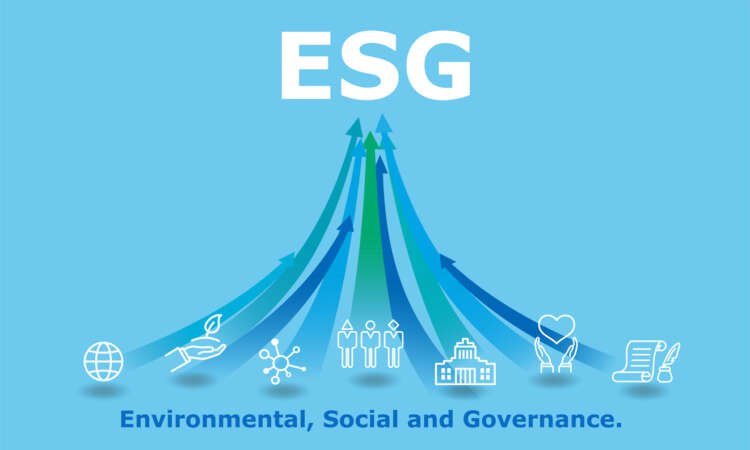The ‘S’ in ESG’s Impact on M&A & How to Mitigate Risks


By Rusty Wiley, Chief Executive Officer of Datasite
Strong environmental, social, and corporate governance (ESG) is increasingly viewed as a mark of business quality and a favorable predictor of long-term revenue by global regulators, investors, customers, and employees.
In turn, ESG is also becoming a more vital part of mergers and acquisitions (M&A) strategies.
For example, companies now see environmental factors, including climate change, as both a deal inhibitor and a source of value creation. Recent survey findings show that most business leaders predict ESG will become increasingly critical to M&A decision making in the next 12-24 months, while dealmakers see climate-change as the biggest dealbreaker to completing M&A this year.
Yet, while the prioritization and surge in ESG investment is mostly centered on regulatory issues surrounding decarbonization and sustainability, social and governance issues are also expected to have a greater impact on deals.
DE&I Counts in M&A
How businesses address human rights and human capital management, navigate controversial social issues, and even certain whistleblowing measures, can influence the outcome of a proposed deal. A recent Datasite survey found that 22% of dealmakers have seen deals fall apart because of DE&I-related issues, including concerns related to culture and a company’s hiring, advancement, and retention policies. There is also clear evidence that buyers are taking a pass on investment opportunities where there are concerns. Last year, for example, two private equity firms walked away from a potential deal because of worries about worker conditions.
Additionally, new or proposed regulations, particularly in Europe, are likely to make assessment of social concerns even more pressing. Germany’s recently enacted Supply Chain Act seeks to create greater protection of the environment and people, including respecting human rights along the entire supply chain of a business, while in February, the European Commission published a proposal directive on corporate sustainability due diligence to tackle human rights and environmental impacts across global value chains. These follow France’s Duty of Vigilance Act which requires business to identify human rights and environmental risks and to adopt measures to prevent them.
The US has also signaled an increased focus on DE&I in business. Last year, US President Biden signed an executive order on diversity, equity, inclusion and accessibility in the federal workforce, which aims to use the federal government’s hiring practices as a model for the wider country, including the private sector.
Given the heightened attention, the following are some focus areas for both buyers and targets to consider when assessing the social or culture-related risks and benefits of a potential transaction:
Follow the people, processes and procedures: Hiring and retention strategies, workplace complaints, management’s approach to supply chains, and human rights are all part of assessing an organization’s culture. Looking at each of these can help ensure deal teams understand where the risks lie. Deal teams may also want to see how issues are addressed in procurement processes, and what processes are in place for checking suppliers.
Power due diligence with technology: While there are no standard operating procedures to follow when assessing social risks, there are tools within virtual data rooms or cloud-based digital storage areas where documents and artifacts surrounding a deal are kept during the due diligence process. These include robust optical character recognition (OCR) search functionality to help dealmakers and advisers hunt for keywords, such as “culture,” “talent,” “recruitment” and the like. These search alerts aid in the due diligence process, allowing users to only search once for a term and set an alert for when any new documents with that term are added to the data room. This makes it significantly easier for dealmakers to search for these important insights while in VDRs. Ultimately, leveraging tech-enabled tools like these will help dealmakers make important DE&I due-diligence decisions faster and more efficiently.
Use ESG checklists: Dealmakers and advisers should also routinely add deal-specific ESG risks to due diligence checklists. Being able to fully understand how social activities impact specific industries and target companies (and their valuations) will help ensure a smoother, more comprehensive diligence process and fewer surprises for everyone involved. Given that ESG and DE&I related issues are often complex, checklists can be utilized to make sure nothing is overlooked.
The additional regulatory requirements provide an opportunity for organizations to highlight their socially conscious actions to attract investors, partners and, likely, customers. At the same time, organizations that embrace the continued focus on ESG and undertake diligence to understand the value and risks of a potential acquisition will be best placed to succeed.
ESG stands for Environmental, Social, and Governance. It refers to the three central factors used to measure the sustainability and societal impact of an investment in a company.
M&A stands for Mergers and Acquisitions, which is a general term that refers to the consolidation of companies or assets through various types of financial transactions.
Due diligence is the process of investigating and evaluating a business or investment opportunity to confirm all relevant facts and financial information before proceeding.
DE&I stands for Diversity, Equity, and Inclusion. It encompasses policies and practices that promote the representation and participation of different groups of individuals.
Corporate governance refers to the systems, principles, and processes by which companies are directed and controlled, focusing on the relationships among stakeholders.
Explore more articles in the Business category











